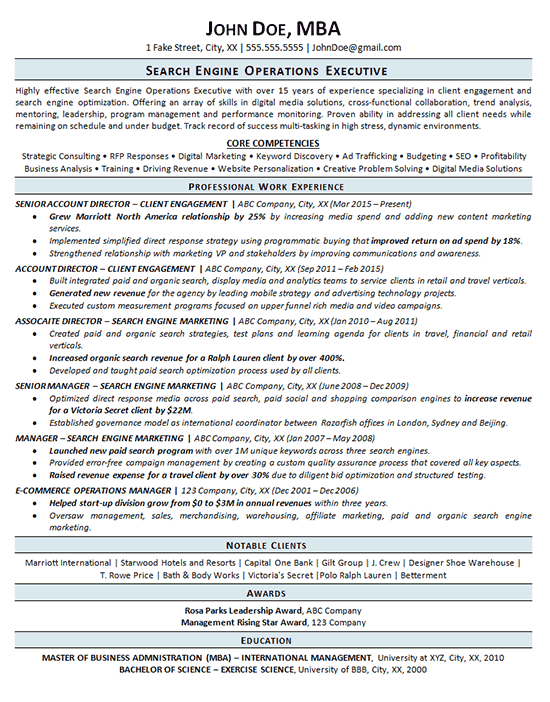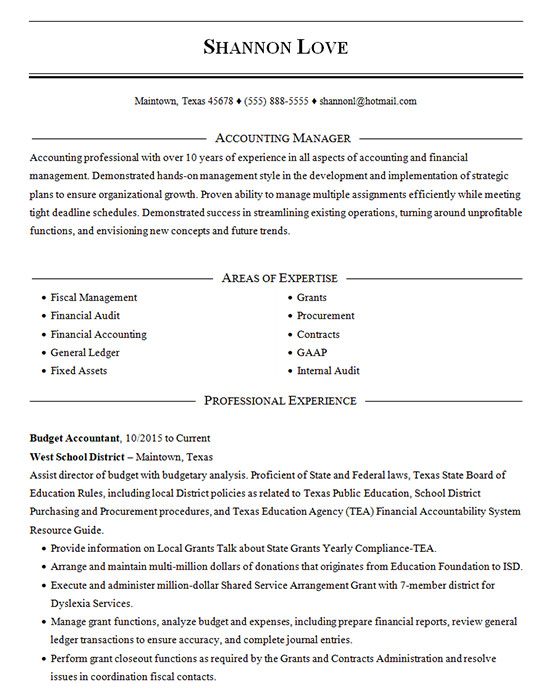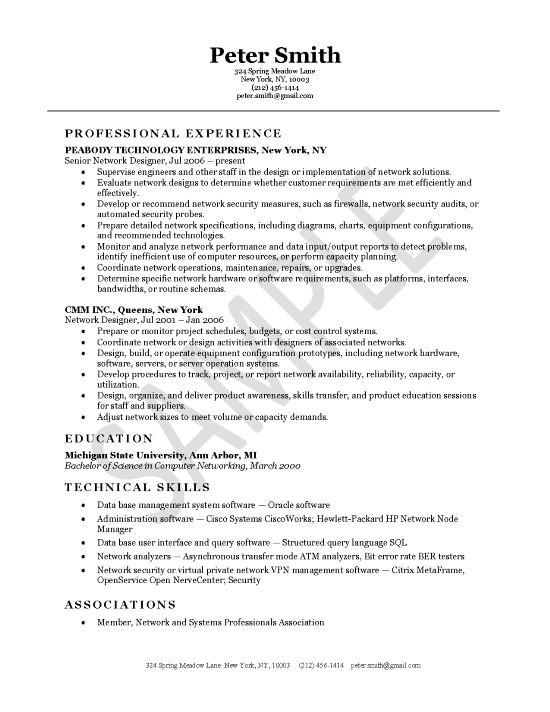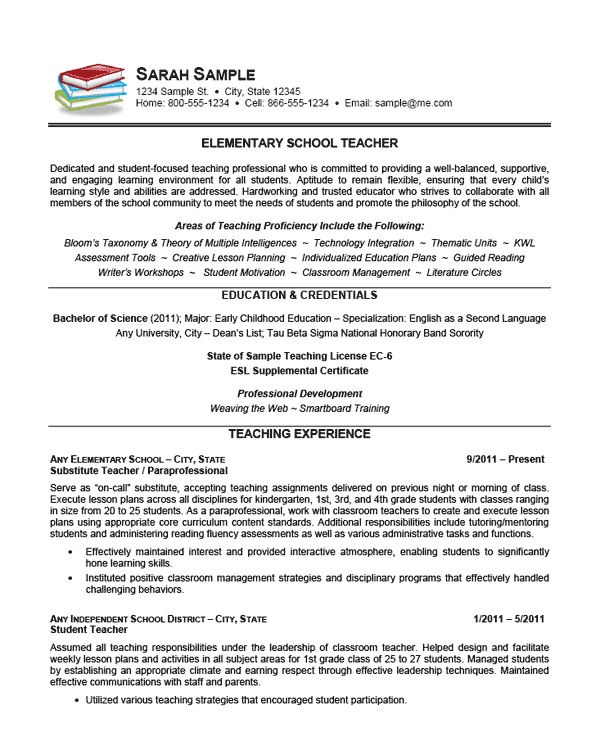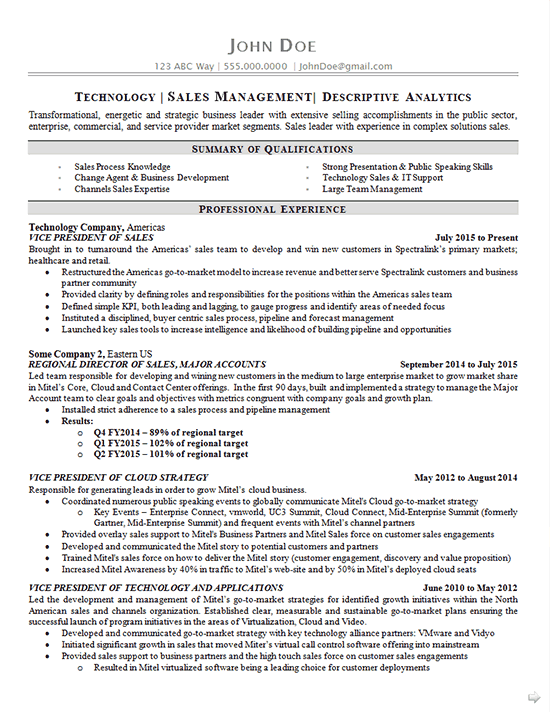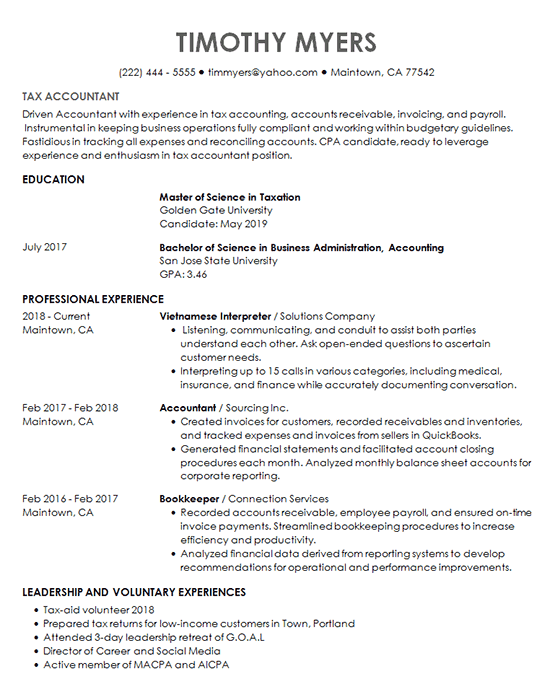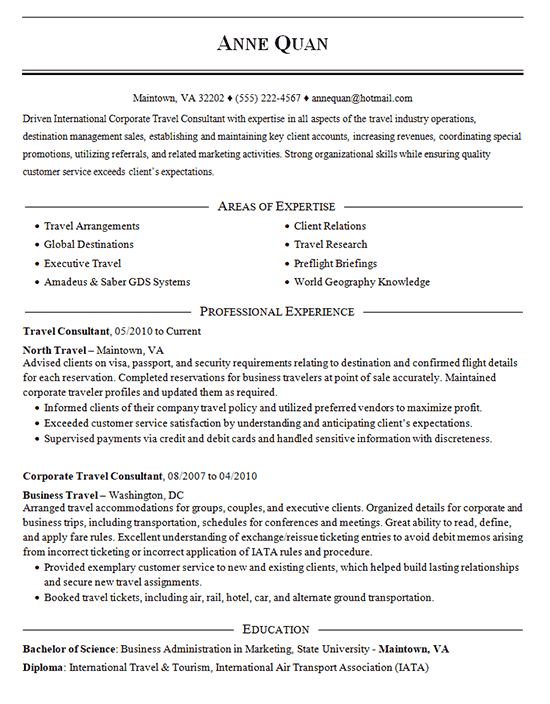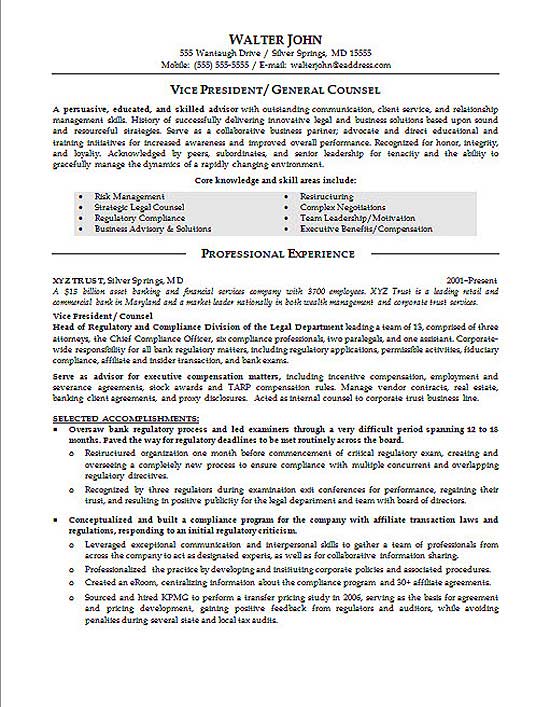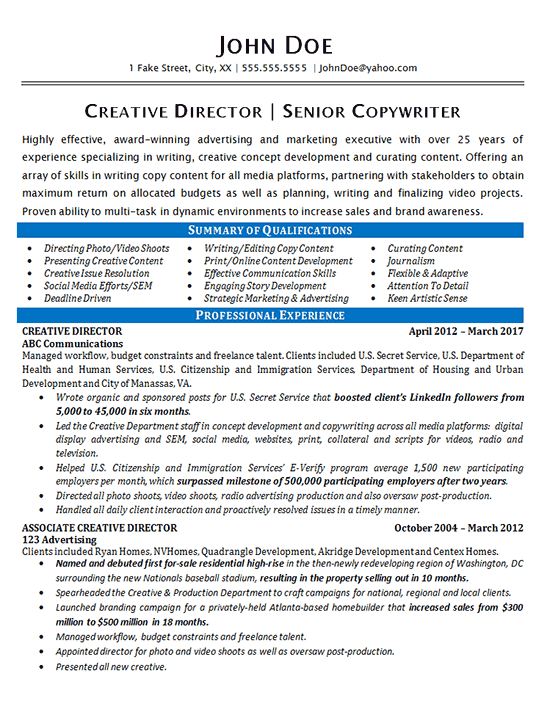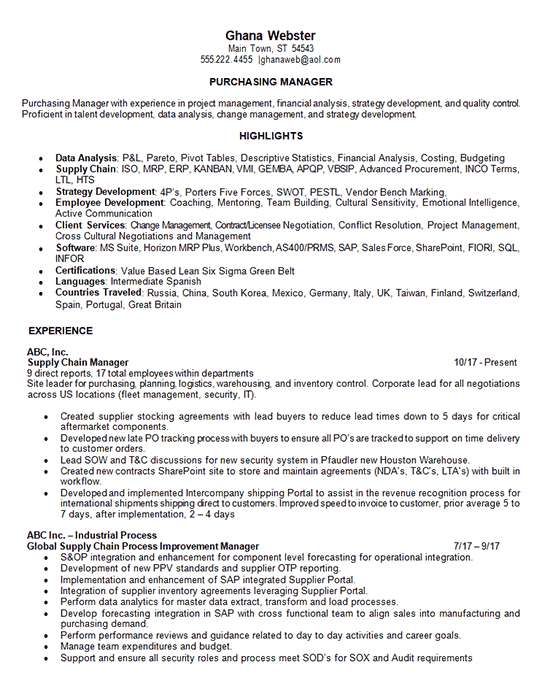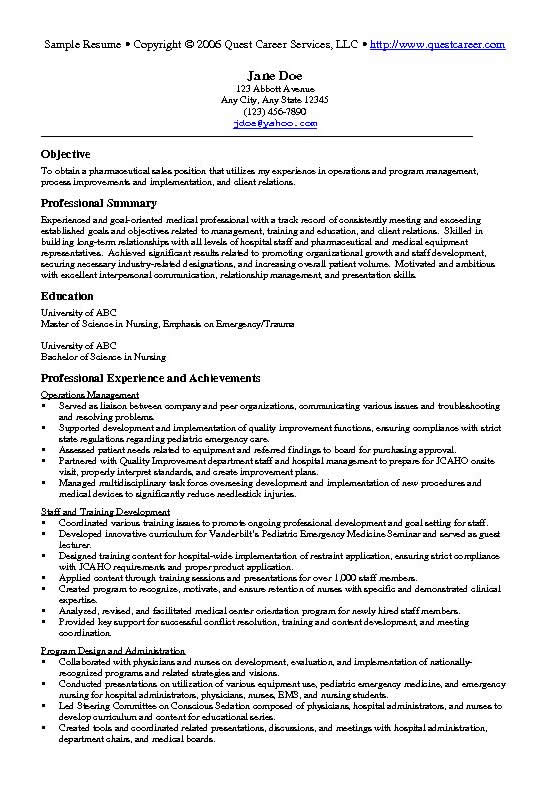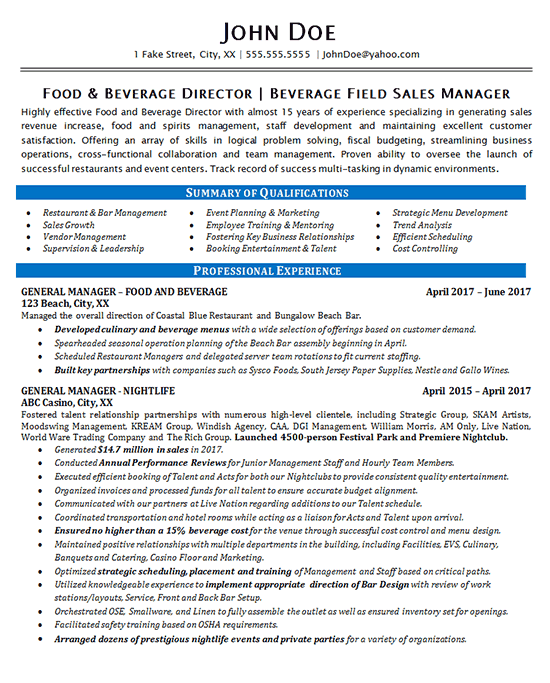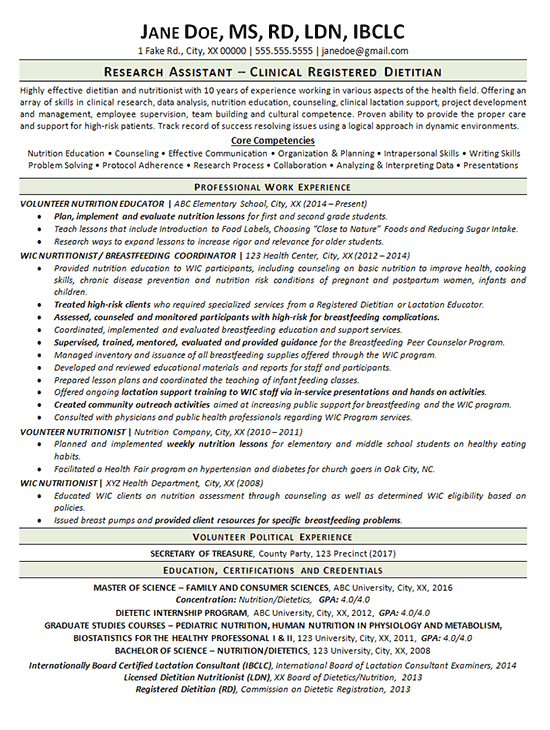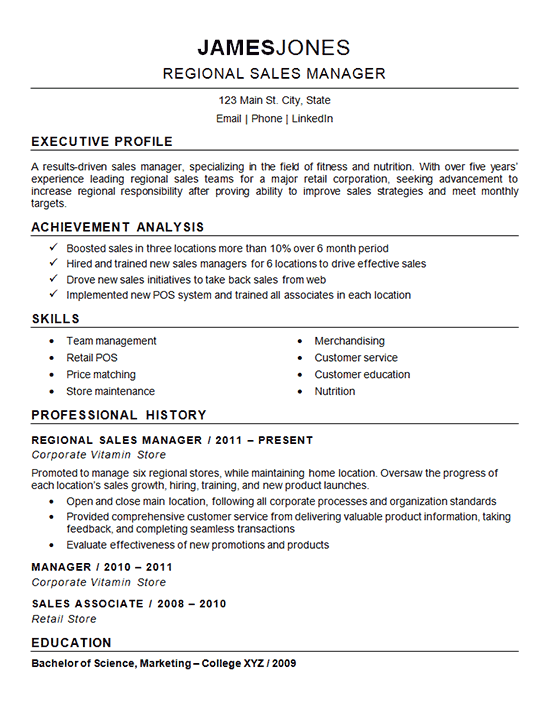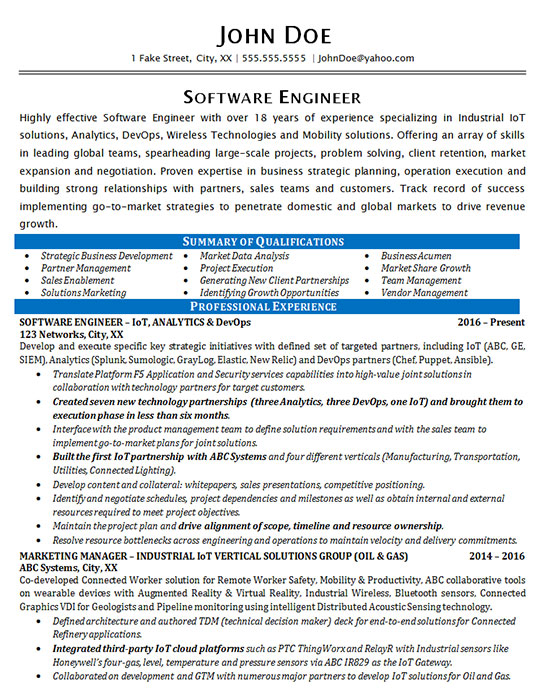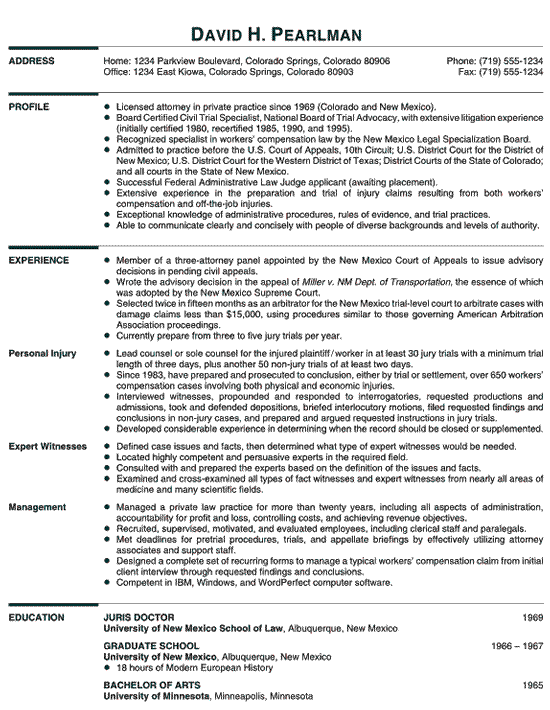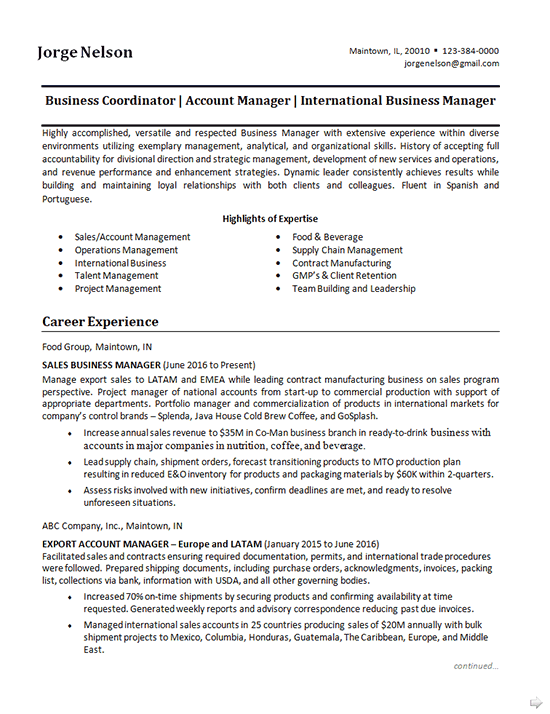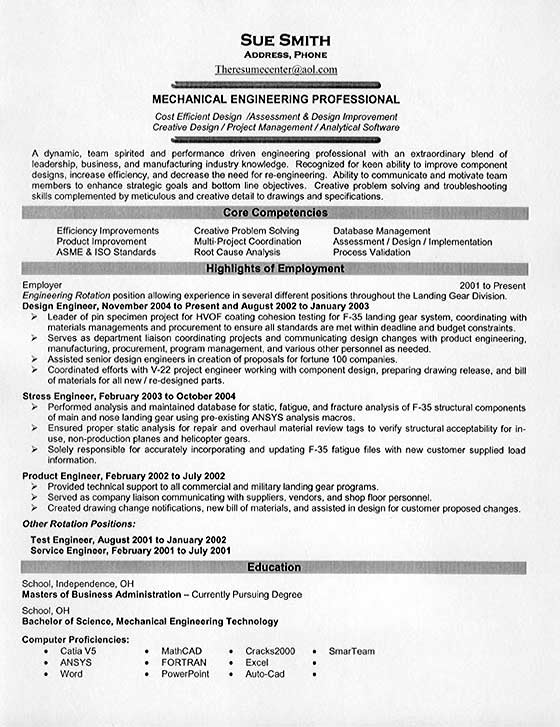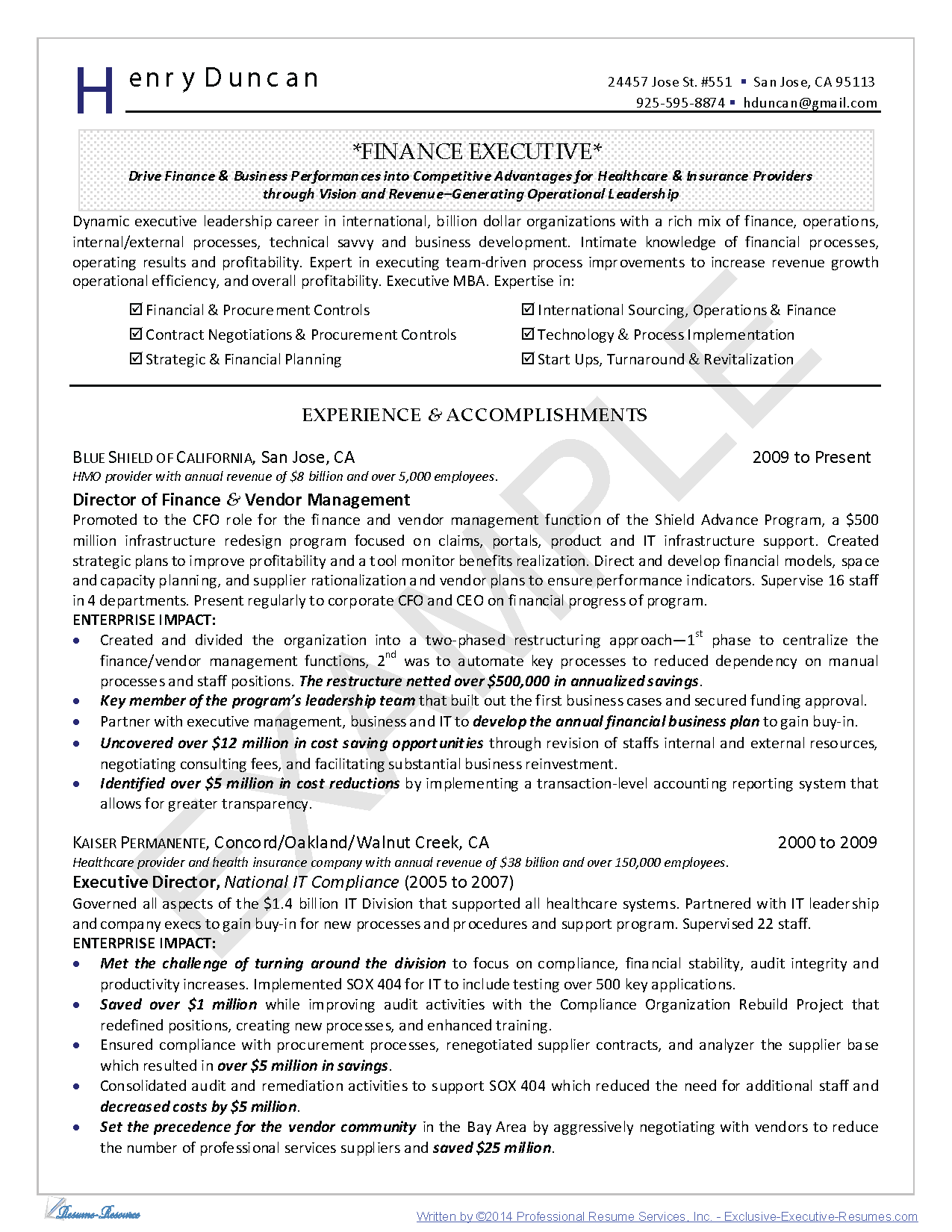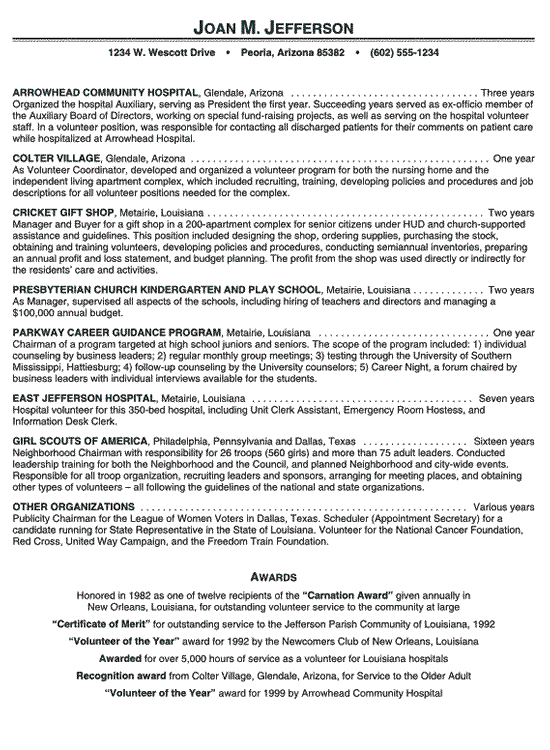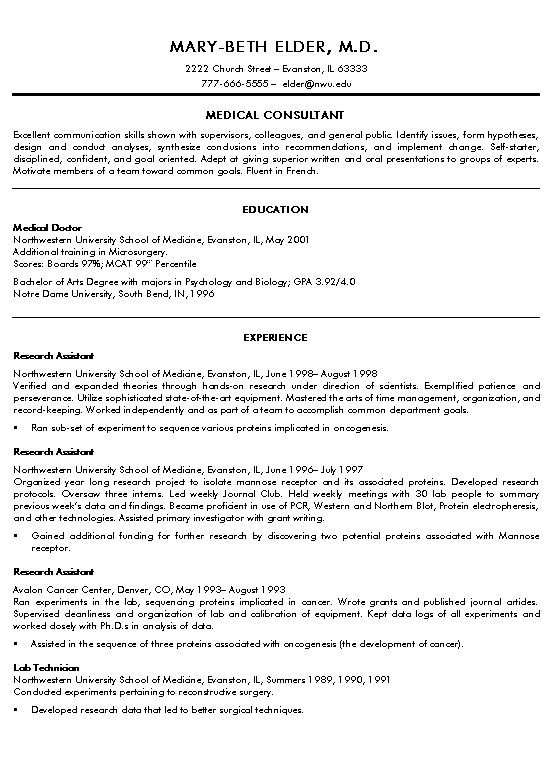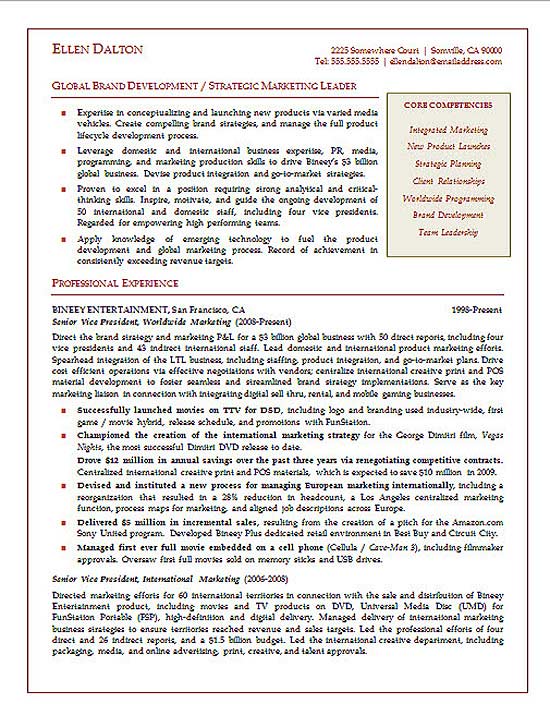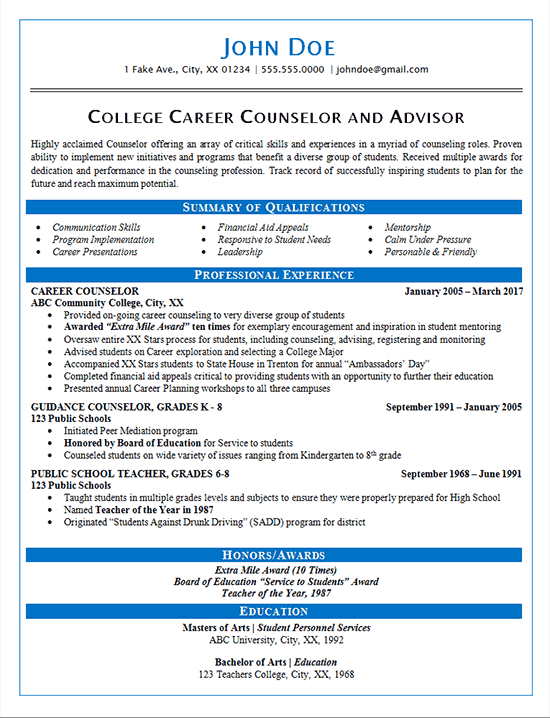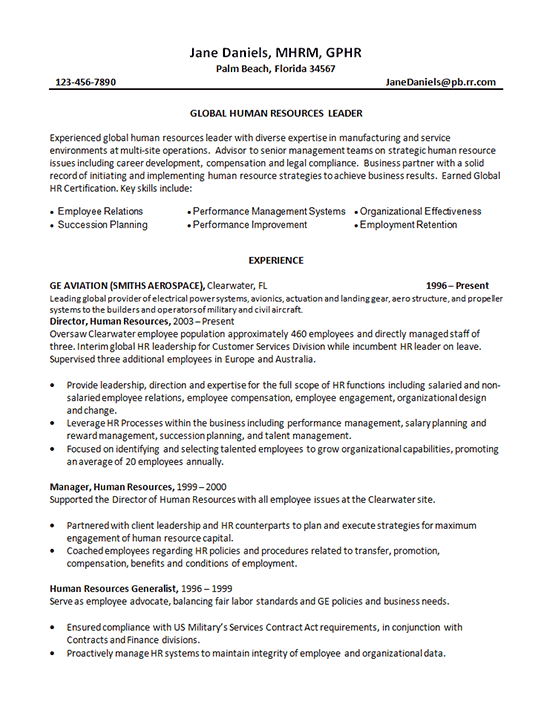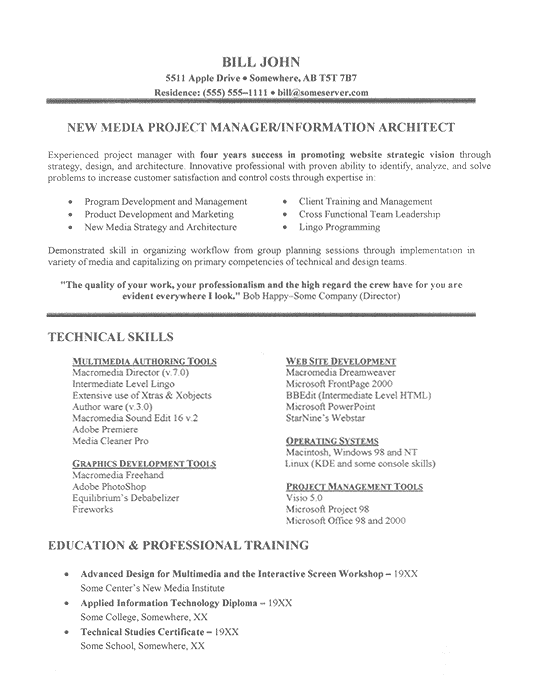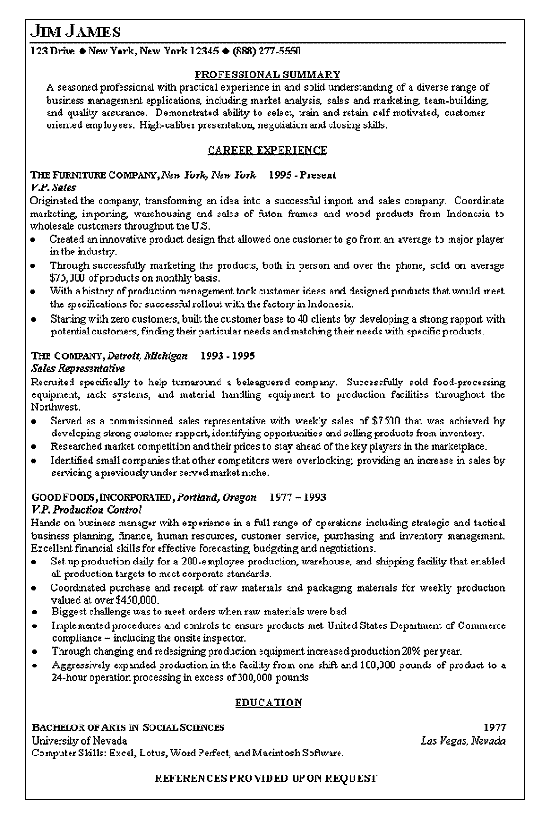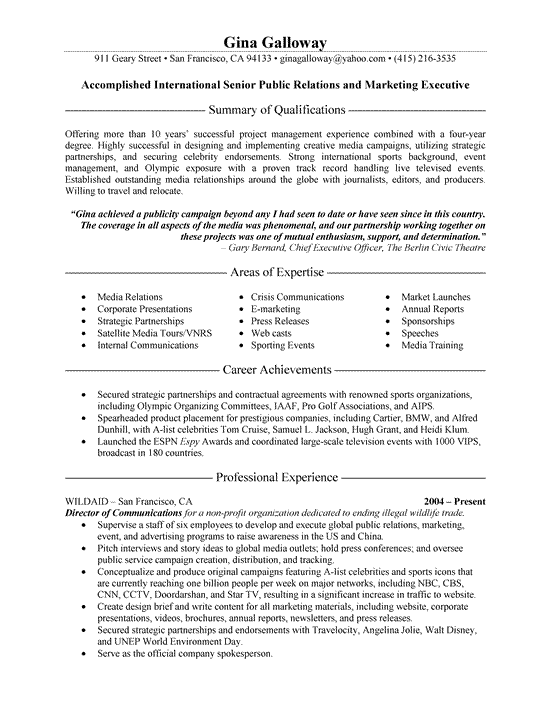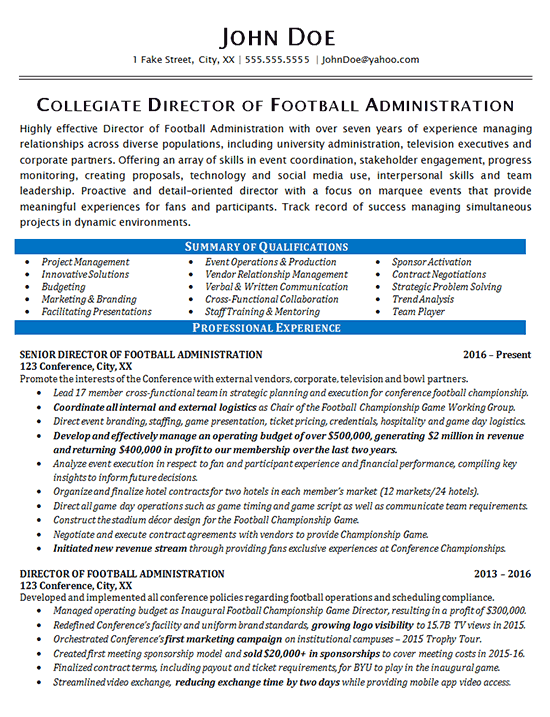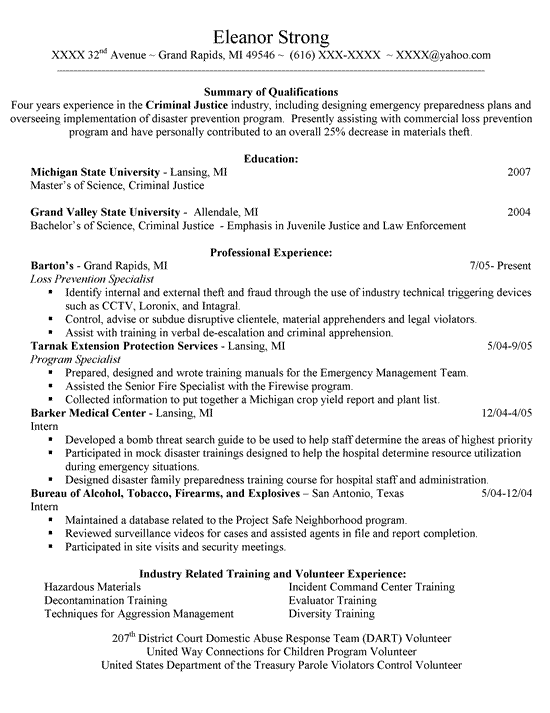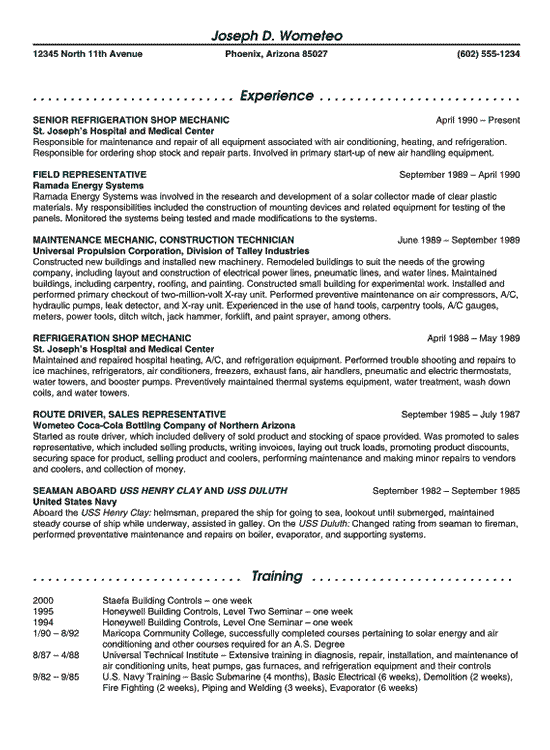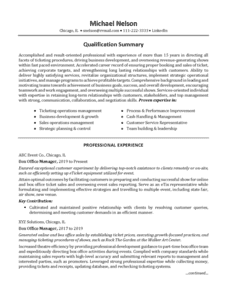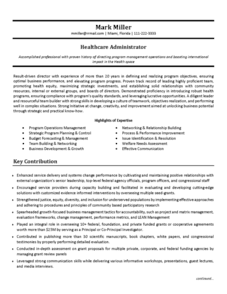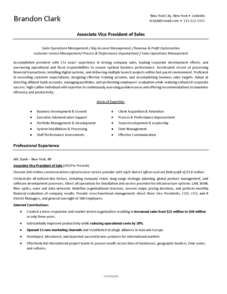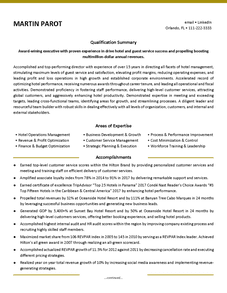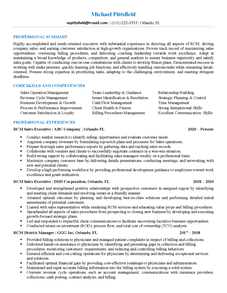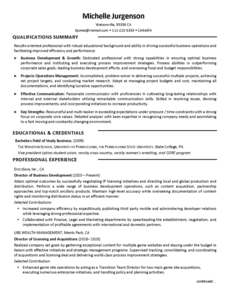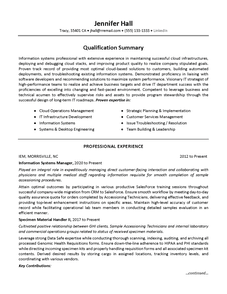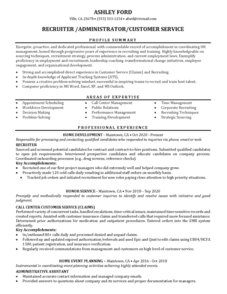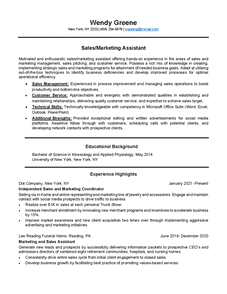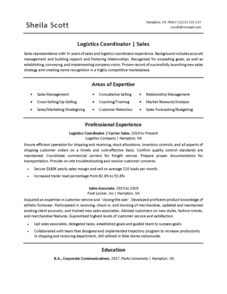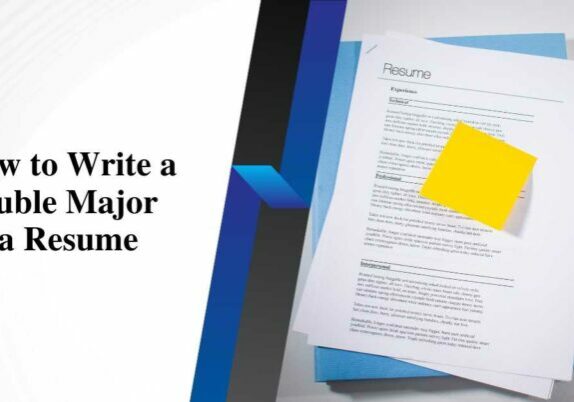Below you will find a resume Example for health care professional with job experience in Acute Care Nursing. This can be a useful resource for most people seeking nursing positions.
A career objective is used to clearly document the job target. The statement emphasizes 10 years of experience as an acute care nurse in outpatient clinic environment.
The experience section lists duties and responsibilities such as patient collaboration, medical assessment, acute/critical care and emergency medical procedures. The statements go on to feature other skills including diagnostic testing, blood transfusions, documentation and administration.
Training includes a B. S. in Nursing, Registered Nurse certification and CPR certification.
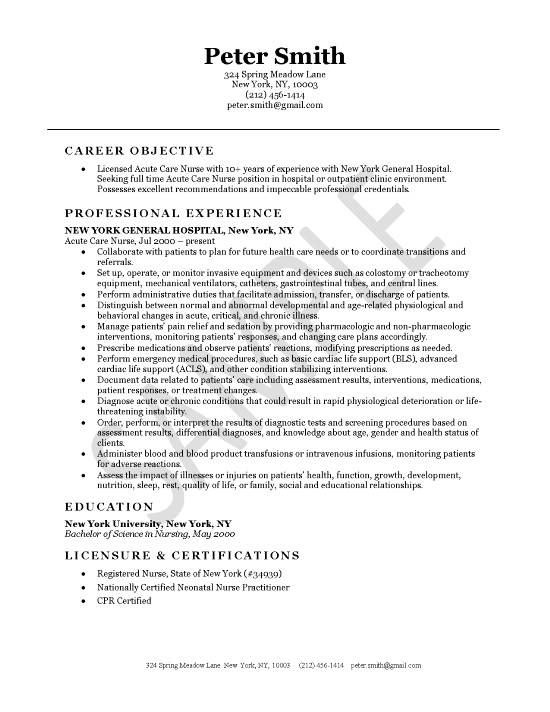
Acute Care Nursing Resume Example
Acute Care Nursing Resume Statements
- Work in critical area of Emergency Department to deliver acute care nursing.
- Manage patient care team to provide full range of patient services.
- Provide complex clinical assessments, diagnostic testing and therapies for acutely ill patients.
- Administer medications and perform general physical therapy on patients.
- Draw blood, take vital signs, administer IV’s, utilize electrical medical devices and conduct testing.
- Document patient care and status, while maintaining internal guidelines and external standards.
- Collaborate with doctors and nursing staff to help patients to minimize complications and improve overall health
- Assess family needs, relay critical information and provide emotional support.
- Attend staff meetings, project meetings, conferences and continuing education programs.
Acute Care Nursing Resume Writing Tips
Are you an acute care nurse looking for a new job? Crafting your resume is like putting together a puzzle – completing it takes time, patience, and the right pieces. You need to showcase your qualifications and experience in a way that stands out and demonstrates your passion for providing acute care nursing. This article will offer tips and tricks on creating a winning resume and cover letter to help you secure your dream role.
What Is an Acute Care Nurse and What Do They Do?
As an acute care nurse, you’re an integral part of the healthcare team, providing comprehensive care to patients experiencing acute illnesses, injuries, and diseases. Your resume should reflect your expertise in direct critical and acute care nursing and your critical thinking and problem-solving skills.
A care nurse resume example should include your experience assessing patients, monitoring vital signs, administering medications, and developing care plans. It should also include relevant education, certifications, and special training. Use industry-specific terms and action words like monitored, coordinated, and implemented.
Your cover letter is an opportunity to highlight your qualifications and your passion for the job. Demonstrate your understanding of the role and explain why you’d be a good fit. Your resume and cover letter should also reflect your team leadership abilities and your experience in case management and nursing plan development.
When creating your resume, focus on your experience in telemetry and medical-surgical procedures and your ability to provide patient education and discharge instructions. Your resume should also showcase your medication administration skills and expertise in providing comprehensive care to patients with various complications. Additionally, highlight your ability to coordinate care with external healthcare providers and rehabilitation services.
What Skills Should I Include in My Acute Care Nurse Resume?
Include your expertise in critical care, decision-making, communication, and managing acute conditions in your resume to captivate employers and show them the impact you can have in the role.
When writing your nurse practitioner resume, start with a professional summary that showcases your qualifications and emphasizes your advanced skills.
Then, include your work experience section, which should include your positions as an acute care nurse, charge nurse, and critical care nurse. Highlight your experience in providing life-saving treatments, administering medications, monitoring vital signs, and providing patient education.
Next, list any certifications, such as ACLS or TNCC, and any specialized training you have completed.
Use the CAR framework to explain your achievements and your impact on your roles concisely.
Finally, add a section for your educational background and skills. Include any relevant education, such as a BSN or MSN, and any additional skills, such as patient advocacy, that you have.
With the right combination of qualifications and experience, your acute care nurse resume will stand out and help you land the job.
How Do I Describe My Nursing Experience on My Resume?
Highlighting your nursing experience on your resume can help you stand out and land the job. When describing your experience, focus on the direct patient care you provided and the plan of care you developed.
Use a resume format that is clear and concise, and incorporate keywords like life support, patient outcomes, diagnostic testing, care standards, care coordination, and clinical skills.
Use a resume builder to create a professional-looking resume, and use resume samples for inspiration.
Include an objective or summary statement briefly describing your experience and demonstrating your qualifications. Highlight any specialized certifications or advanced training you’ve received.
Provide detailed descriptions of your experiences in acute care nursing, and explain how you’ve provided care to patients and families. Include any achievements or awards you’ve received to show your commitment to excellence in nursing.
Include specific examples of the direct patient care you provided. Describe any assessments, treatments, or other interventions you performed for patients. Also, include any educational support or counseling you provided for patients and families.
Be sure to use industry-specific terminology and avoid jargon or slang.
By describing your experience as an acute care nurse on your resume, you can show employers that you have the qualifications to provide excellent care. Use the CAR framework to demonstrate your impact and showcase your achievements.
A well-written resume can help you stand out and get your desired job.
How To Write a Winning Summary for a Nursing Resume
Writing a compelling summary for your resume can help you stand out from the competition and land the job you want. With the right words and format, you can make a lasting impression and show employers why you’re the best candidate.
Avoid the common pitfalls of resume summaries and take the time to craft a unique statement that reflects your skills and experience. As an acute care nurse practitioner, highlight your degree in nursing, certifications, and professional experience. Describe your job title and how you’ve used your skills to provide exceptional care as a nurse.
Include any specialized training you’ve taken and any awards or recognition you’ve received. Use a format that best reflects your experience when looking at resume templates. If you’ve worked in various settings, utilize a combination format that allows you to showcase your skills and experience.
Utilize care nurse practitioner resume examples to help you get started and create a professional summary that stands out from the competition. With your unique qualifications and experience, you can create a winning summary to help you get the desired job.
Tips for Writing an Eye-Catching Cover Letter To Go With My Resume
Make your application stand out by crafting an eye-catching cover letter that complements your resume and highlights your qualifications. When writing your cover letter, use clear and concise language to demonstrate your qualifications as a (RN) registered nurse.
Include your certifications, experience as an acute care nurse in an intensive care unit or medical-surgical care unit, and knowledge of care management. Focus on the qualifications and experiences listed in your summary statement and highlight how your skills and expertise are relevant to the position.
Include specific examples of how you’ve successfully developed and implemented care plans or collaborated with nursing staff. Demonstrate your ability to coordinate patient care with external healthcare providers and provide education and training to patients and caregivers.
Make sure to include any relevant volunteer work, language proficiency, or other qualifications that may apply to the position.
Close your cover letter by expressing your enthusiasm for the position and why you think you’re the best person for the job. Highlight any special skills or experiences that make you the ideal candidate. Include your contact information and thank the employer for considering your application.
With a well-crafted cover letter, you’ll be sure to make a lasting impression on the hiring manager.
Conclusion
You have the skills and experience to be a successful acute care nurse. You have the passion and expertise to help patients in critical care settings.
Your resume and cover letter are like the wings of a bird that will take you to great heights, soaring above the competition. You have the potential to make a real difference in the lives of your patients, so don’t be afraid to spread your wings and show the world what you can do.
Acute Care Nursing Resume By Resume Companion

